CIA Sponsored Terror, Criminalizing Dissent, Guantanamo, Human Rights, Political Prisoner, Prison Industry, Torture, Truth to Power
Podcast: Play in new window | Download
Updates:
- Michael Ratner: Palestine Not Recognized As State By U.S. Thus Allowed To Be Sued In Federal Court For Attacks on Israel
- Michael Ratner: Why Is Obama Trying To Get An AUMF When The U.S. Is Already At War With ISIS? If Passed, The U.S. Under This Act Can Make War Everywhere
- ICC En Vogue? – Hosts Talk About NBC Drama “Crossing Lines.”
—–

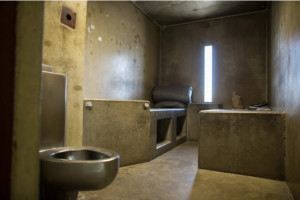
Pelican Bay Solitary Confinement Case Update
We bring you an update on the Pelican Bay Prison Solitary Confinement Case. As you may recall Pelican Bay Prison had more than 1000 prisoners in long term solitary confinement at 10-20 years or more. The Center for Constitutional Rights and its lead attorney Jules Lobel have been challenging this practice for a number of years since 2012. Recently, the state of California in an effort to blunt the lawsuit has transferred some of the named plaintiffs to other prisons. Their theory, once we’re rid of the plaintiffs maybe we’re rid of the lawsuit. CCR and Jules Lobel went out to California to argue that this is not a Constitutional practice. That transferring a person from Pelican Bay to another prison in California should not blunt the lawsuit and in fact CCR we should be able to challenge solitary confinement in those prisons as well. The judge agreed and now the CCR case will not just challenge Pelican Bay Prison solitary confinement practices but those in other prisons throughout California.
Attorney Jules Lobel:
- Because of 3 hunger strikes and our litigation the California prison officials are now instituting reforms. They realize they have to do something.
- There are over 1000 people in solitary. When we started the case 500 people were there for over 10 years.
- Because of the reforms they’ve made under pressure from our litigation there are now only 230. Still 230 people for over 10 years is a huge amount.
- They’re also moving people out not only to general population prisons, but to other solitary units in other prisons. Other SHOES, its called Special Housing Unit.
- Four of our ten plaintiffs are moving to another SHOE to a place called Tahachapi and the defendants say, they’re no longer part of your case.
- That’s what the argument was about. The argument was about whether or not you can expand the case beyond Pelican Bay.
- If you were at Pelican Bay and transferred to another prison, still in solitary, you’re still part of our class.
- The judge accepted that we can expand the case, rejecting the state’s argument.
- We bifurcated the trial so we could have a relatively quick trial on Pelican Bay. The fundamental question for Pelican Bay trial is whether keeping people for a prolonged period of time in solitary confinement at Pelican Bay is cruel and unusual punishment.
- We also have a claim in that way that they are placed there. It violates due process.
- These guys only get reviews every six years. So, you stay in your cell for six years and then after six years somebody comes and reviews whether you should be kept in solitary.
- No state in the country has six years. Usually its 30 days, 90 days, six months, maybe at most a year.
- California unlike most states puts people into solitary simply because they’re a member of a gang or associated with a gang.
Guest – Attorney Jules Lobel, has litigated important issues regarding the application of international law in the U.S. courts. In the late 1980’s, he advised the Nicaraguan government on the development of its first democratic constitution, and has also advised the Burundi government on constitutional law issues. Professor Lobel is editor of a text on civil rights litigation and of a collection of essays on the U.S. Constitution, A Less Than Perfect Union (Monthly Review Press, 1988). He is author of numerous articles on international law, foreign affairs, and the U.S. Constitution in publications including Yale Law Journal, Harvard International Law Journal, Cornell Law Review, and Virginia Law Review. He is a member of the American Society of International Law.
——

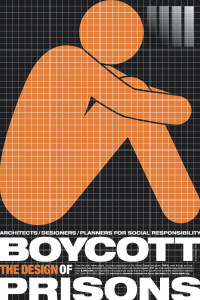
Architect’s Human Rights Code of Ethics Petition
In our coverage of psychologists involved with torture continuing to hold their professional licenses to practice we look at a similar concern with licensed architects who design prisons, solitary confinement cells and death chambers. Research has show that the design of a prison can influence many aspects of prisoners lives including recidivism rates. Recently, the American Institute of Architects rejected a petition to censure members who design solitary confinement cells and death chambers.
Raphael Sperry:
- In 2013 when the UN Special Rapporteur on Torture announced that spending more than 15 days in solitary confinement was a human rights violation and we’re aware that people in the United States are routinely held in solitary for years if not decades, and that there had been dozens of supermax prisons that housed thousands of people in those conditions, specially designed for that purpose, that really tipped the scales.
- That was really shocking to realize the same tools that architects use everyday trying to make the world a better place for people can be used to torture and kill people.
- The question of what constitutes a torture chamber is complicated. There are many buildings that have been used to house prisoners in solitary confinement that were never designed for that purpose.
- There are a subset of prisons that are designed for solitary confinement. They’re usually called administrated segregation units.
- Supermax prisons are the most egregious. There’s no space for people to eat together. There are no tables with seats clustered around them even.
- The recreation spaces that prisoners have a right to go into for an hour a day, are shrunk down to size that they’re for just one person.
- You guys are probably familiar with ADX Prison in Florence, the Federal Supermax which is supposed to be the most secure supermax in the United States.
- In that facility they actually have showers in every cell. The prisoners then actually don’t have to get into the hallway. They might walk by somebody elses’ cell or walk by somebody elses’ cell to get to a shower.
- The AIA has a code of ethics for members and it already had a statement saying members should uphold human rights in all their professional responsibilities.
- It’s not directly enforceable. If members set out to design a space intended to kill somebody or to torture them or degrade them which is a human rights violation. AIA is not prepared to take any disciplinary action to someone who does that.
- We were asking them to simply add a rule that clarified if a member designed a space that is intended for human rights violations specifically execution and prolonged solitary confinement that it would be clear they’re in violation of the code of ethics and then AIA could take disciplinary action that include censure and expelling them from the institute.
- The National Board of Directors gets to set the ethics code for the whole organization including all the chapters. They took in our petition. They took in all the letters of support we sent in.
- Then they didn’t communicate with us . . they referred it to an internal group. They never let us know who was on that panel. They sent a brief letter back to me head of the ADPSR saying that they weren’t going to make the change and they were concerned about potential anti-trust violations and how hard it would to enforce.
- Lastly, they don’t want to restrict their members from designing any particular building type. I just found that to be the worst.
- To me if you’re going to be a professional and take on the responsibility of protecting public health, safety and welfare every time you put your pencil down then there should be limits to what you do with that specialized knowledge.
- To us its not a political issue, its a human rights issue and they said they’re an organization that’s for human rights. It didn’t seem right to us that they should pick and choose which human rights they’re ok with and which ones they would restrict.
Guest – Raphael Sperry, president of Architects / Designers / Planners for Social Responsibility (ADPSR), a 32-year old independent non-profit organization. He researches the intersection of architecture and planning with human rights with a special focus on prisons and jails, and advocates for design professionals to play a larger role in supporting human rights in the built environment. He directs ADPSR’s human rights advocacy, including ADPSR’s petition urging the AIA to amend their Code of Ethics and Professional Conduct to address buildings that violate human rights. He was the first architect to receive a Soros Justice Fellowship from the Open Society Foundations, hosted jointly by the University of California at Berkeley College of Environmental Design and Berkeley Law School, in 2012. He is an active member of the AIA Academy of Architecture for Justice and a leader of its subcommittee on sustainability.He holds an M.Arch. from the Yale School of Architecture and a BA summa cum Laude from Harvard University.
—————————————

Please help support Law and Disorder by clicking on Fractured Atlas graphic. This radio show is now a sponsored project of Fractured Atlas, a non-profit arts service organization. Contributions for the charitable purposes of Law and Disorder must be made payable to Fractured Atlas only and are tax-deductible to the extent permitted by law. You can donate as little as 5.00 a month.
CIA Sponsored Terror, Civil Liberties, Criminalizing Dissent, FBI Intrusion, Guantanamo, Habeas Corpus, Human Rights, Political Prisoner, Prison Industry, Supreme Court, Surveillance, Targeting Muslims
Coming Up Next Week Police Shooting Reaches Supreme Court Exclusive Michael Avery Interview
Podcast: Play in new window | Download
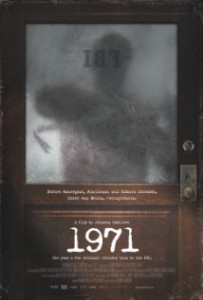

1971
On March 8th 1971, a group of anonymous individuals calling themselves the Citizen’s Commission to Investigate the FBI, broke into an FBI field office in Media, Pennsylvania. They stole thousands of government documents. Among the documents was proof that the FBI under J. Edgar Hoover, was spying on law abiding citizens. The program is known as COINTELPRO and it was used to monitor, manipulate and disrupt social and political movements in the United States. The Citizens’ Commission to Investigate the FBI has been documented recently in a highly acclaimed film titled 1971, directed by Johanna Hamilton.
Johanna Hamilton:
- I consider myself to have the good fortune to have known Betty Medsger, the author of the Burglary, for many years.
- She and I had a personal relationship that long predated our professional collaboration.
- Over time she came to share the outlines of the story with me and it sounded completely remarkable.
- She introduced me to a few members of the Citizens Commission to Investigate the FBI. The 40th anniversary was approaching.
- They wanted the story, which was so little known, to have a larger life.
- To be clear, Betty worked many years on the book. She’s done remarkable and profound research and I joined much later and was the net beneficiary of so much of her research.
- There were four years where we worked in tandem.
- When I showed the film to the Citizens Commission, while the credits rolled, Keith (Keith Forsyth – the lock picker) especially, he got up and said, good job.
- It’s a period of history I’ve been fascinated with since I was a teenager. It was the story of these extraordinary ordinary individuals who had put everything on the line and taken such great personal risk to benefit democracy.
- They trained themselves for one night of crime. They steal all the documents in the office, leak them to the press. They send them to major newspapers, and to a couple politicians. In the end, the Washington Post is the only newspaper that decides to publish the first stories.
- Those first stories reveal with out question illegal government spying on citizens who are going about their daily lives and exercising their First Amendment rights.
- Betty wrote the first stories in the Washington Post and the story fades a little from the headlines. The Pentagon Papers explode 3 or 4 months later. Daniel Ellsberg is on the scene.
- Then our story picks up again.
- It seems inconceivable now but Hoover had been director for over 50 years, and that’s no longer possible.
- Some people who seen the film before say they were really moved by the Church Committee hearings.
- Attorney David Kairys is a huge figure in Philadelphia and yes back in the day he was contacted by two members of the Citizens Commission. He didn’t know what they had done, but if they got caught, they could call him day or night.
- We were reaching the tail end, or we thought we were reaching the tail end of the film when the Snowden revelations happened.
- The Snowden revelations were one thing, absolute bombshell, but prior to that we had a couple of other instances. Back in 2011, September, there were raids all across the country, animal rights activists, environmental groups. One night Brian Williams introduced the news and described these raids and said you know its reminiscent of Hoover back in the 1970s.
- We had whole scenes cut together with that footage and debated and deliberated on that. In the end erred on the side of excluding it.
- It’s opening here in New York City and will start rolling out across the country. If you check our website we update the cities that it will show at. It will be on PBS, Independent Lens at the end of May. 1971Film.com
Guest – Johanna Hamilton, director of the film 1971. She also co-produced Pray the Devil Back to Hell, which won Best Documentary at the Tribeca Film Festival in 2008 and was shortlisted for an Academy Award. Johanna has produced nonfiction programs for PBS, The History Channel, National Geographic, A&E, Discovery Channel, and The Washington Post/Newsweek Productions, including September’s Children, a documentary for PBS exploring how children around the world are affected by terrorism and war.
—–
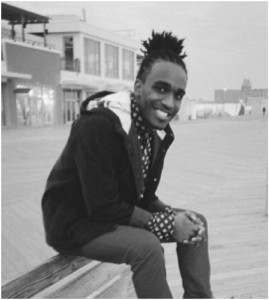
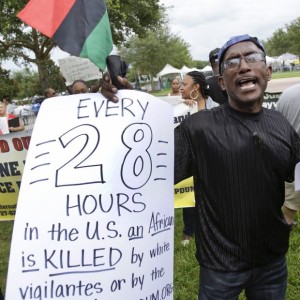
Inspiring, and Awakening Political Activism in Youth
Young people across the nation have played a critical role in taking to the streets to protest social inequities, from Ferguson, Missouri to New York City. In a recent article in the journal Socialism and Democracy, “The Roots of Mass Incarceration: Locking Up Black Dissidents and Punishing the Poor,” writer, activist and youth pastor Nyle Fort describes how he became politically active and who inspired him. We talk with Nyle about the status of protest in this country, the forces of oppression, how young people are involved and how he helps inspire them.
Nyle Fort:
- I graduated from Morehouse College and ended up going to seminary. I was already a licensed and ordained preacher but I wasn’t politicized yet.
- I had already been involved in the community via the church doing speaking engagements with youth and things like that.
- It wasn’t until I got into Princeton Theological Seminary that I began to get politicized.
- The way that it happened was I was taking an introductory seminary class called Systematic Theology with a professor Mark Taylor. In that class he actually had Mumia Abu-Jamal call in live from death row.
- When I heard him speak, I stopped in my seat. This man who I knew nothing of was speaking to me that was moving, not only me but I could tell the entire classroom and doing so by a 6 foot, by 10 foot cell. A cell that he had been in for 30 years, longer than I had been alive.
- Two weeks later I found myself through Mark Taylor at my first rally December 9, 2011. Two days after Mumia had been released from death row.
- I read the New Jim Crow very quickly, then Angela Davis’ works. That was really the beginning for me.
- I entered activism through a prison abolitionist lens, through Mumia.
- The rally for me was an embodiment of the things Mumia was talking about.
- I preach. I was at First Baptist Church in Lincoln Gardens. It’s one of the largest black churches in New Jersey. My style of ministry was evolving as I was being radicalized and politicized.
- I tried to do a lot of social justice work. We were writing letters to our incarcerated brothers and sisters as forms of religious activism.
- I discovered a prophetic religious tradition that comes from a black liberation theological perspective.
- When I was on the bus ride back from Ferguson I was really mad. Mad as hell because I felt there was a relative silence from the church, particularly the black church.
- I believe in love not as a word but as a work.
- When I engage with youth, I try to practice a love that is material. I tell young people, I love you more than they hate you.
- We have to deal the trauma and the pain that we inherit as black people living in the western world and all around the world.
- Love for me is a critical, not a politic that we can talk about, but a practice we can embody and engage in everyday. That has material life.
- We’re going to take Cornell West’s worlds seriously that justice is what love looks like in public, then we have to have a love that’s expansive enough to be material and to be felt.
- Black Lives Matter particularly as a network has articulated a feminist politic, a black feminist politic, a queer politic that is forcing us to live out our intersectionality.
- What we’re not talking about enough is that’s messy, and its not romantic.
- I think of oppression as institutionalized lovelessness. Let’s love each other in ways that causes each other to act.
- Twitter – @nylefort
Guest – Nyle Fort – Nyle is a Master’s of Divinity candidate at Princeton Theological Seminary, a youth pastor, freelance writer, and grassroots community organizer based in Newark, New Jersey. He was very active during the protests in Ferguson, Missouri and New York City.
—————————————————————-

Please help support Law and Disorder by clicking on Fractured Atlas graphic. This radio show is now a sponsored project of Fractured Atlas, a non-profit arts service organization. Contributions for the charitable purposes of Law and Disorder must be made payable to Fractured Atlas only and are tax-deductible to the extent permitted by law. You can donate as little as 5.00 a month.
CIA Sponsored Terror, Civil Liberties, Criminalizing Dissent, Gaza, Guantanamo, Habeas Corpus, Human Rights, Political Prisoner, Surveillance, Torture, Truth to Power
Podcast: Play in new window | Download
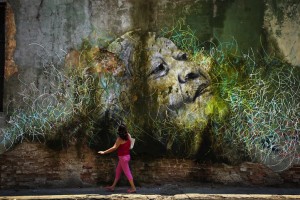

U.S. Cuban Foreign Policy Changes Strategy: Normalizing Relations
We’re joined today by attorney Michael Krinsky, a partner in the famous law firm of Rabinowitz, Boudin, Standard, Krinsky & Lieberman. This the firm that almost has been from the beginning representing the government of Cuba. We speak with Michael about the dramatic reversal of policy and the recognition by the United States of the Cuban government and the eventual establishment of joint embassies. We also speak about the returning to Cuba of the three remaining anti-terrorist Cuban fighters who have been in American prisons for 16 years. Three men of the Cuban Five. That, plus we discuss the changing of the commercial relationships between the United States and Cuba.
Attorney Michael Kinsky:
- It was an extraordinary moment. Word got around that Raul Castro was going to talk to the Cuban people on television at Noon, so everyone ran to find a television, including me.
- I think many people expected Obama to take some minor measures to test the waters perhaps to get things moving.
- Most people were quite surprised about the tone of his speech and what he said.
- I happen to be at a conference of US and Cuban scholars, which were talking about US-Cuban relations, that’s where I saw President Castro’s speech. The first thing he said of course was the cuban heroes. The 3 of the remaining Cuban Five and the place broke into pandemonium. People jumped up literally hugging each other. People were crying, then they quieted down and they listened to the next thing.
- And then when he said President Obama and I have agreed to reestablish normal diplomatic relations. There was silence. Then people half a second later absorbed and again there was a tremendous commotion.
- People felt a sense of triumph. After 55 years of holding despite the Bay of Pigs, despite the economic blockade, despite the special period when the trade with the Soviet Union collapsed, they had held on. In the end, someone put it, the United States came to us.
- You could see it in the streets, you could see it in the restaurants, you could see it in the offices. People were happy.
- They were literally smiling for days afterward.
- The embargo has been in effect for 54 years. It’s as comprehensive an embargo as this country has ever imposed, as any country has every imposed against any country.
- It’s not simply the US saying we the United States won’t trade with Cuba. A major part of it is extra-territorial reach. The effort for Cuba to make trade with third countries difficult and impossible.
- They can’t get US parts for their equipment.
- They can’t use US dollars for international transactions, which is the currency of international trade.
- Shipping to Cuba is made extremely difficult because of the US law that says if a ship goes to Cuba it can’t come to the United States for six months.
- Everyone in Cuba lives on a daily basis what they rightfully call a blockade.
- A blockade implies an effort to interrupt, disrupt trade between Cuba and a third country.
- There is nothing there about Cuban products being sold in the United States. It’s all one way.
- Cubans have developed a lot of innovative medical products that doctors are very excited about.
- There was nothing in the announcements about regular airplane service between the two countries.
- (Michael Ratner: The president has the authority to license almost everything, every economic transaction with Cuba at this point)?
- Right export, import, financial transactions, loans, credits, investments, all of these things are within the president’s licensing authority.
- The United States did not want a left wing socialist revolution to succeed in the Americas.
- The theme publicly and internally in the US government, until about 1991, 1992 and then there was a shift. Then for the first time, the United States publicly started talking about the goal of US policy including the blockade was to change the internal character of the Cuban system. The Cuban government.
- Civil liberties, free elections, free speech – those became for the first time the articulated goals of US policy.
- Guantanamo Bay used to be a Naval Station for coaling, ships operated on coal then. There was a 99 year lease between a captive Cuban government and the United States.
- I’m trying to find the right balance between a great deal of enthusiasm and not necessarily skepticism, but caution.
- It was nice to see the State Department make reference to this, the United States has claims for the nationalization the properties of its companies in Cuba in the early days. Cuba has articulated it has much greater claims against the United States for the blockade and for acts of economic sabotage which have died actually over the years.
- There are claims on both sides that have been articulated in the past.
Guest – Attorney Michael Krinsky, has been practicing law for forty-five years. For three decades, he has led the Firm’s representation of Cuba and other foreign governments, and their agencies and enterprises, as well as the Firm’s practice in the area of U.S. embargoes and export controls. Mr. Krinsky graduated from the University of Chicago’s College in 1965 and its Law School in 1968. After working with the American Civil Liberties Union in Newark, New Jersey, he joined the Firm in 1971.
——
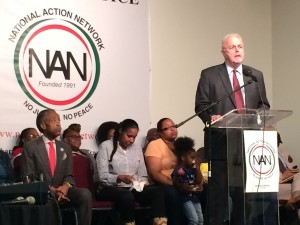
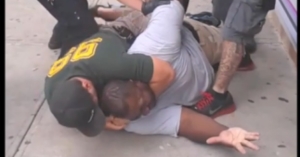
NYPD Unions Respond To Police Shootings, Says Protests At Fault
In the wake of the killing of two NYPD officers, a rift has widened amid police unions and the mayor of New York City. The New York City Police Benevolent Association Officers has suggested that the recent demonstrations against police misconduct and police violence have played a role in the execution style murders. To discuss the rhetoric from the police union and the tabloid media, we’re joined by attorney Jonathan Moore.
Attorney Jonathan Moore:
- It is a critical moment here in New York City and around the country on the issue of dealing with over aggressive policing and the militarization of police, I think they go hand in hand.
- We’ve been fighting this battle in New York for at least 15 years going back to the killing of Amadu Diallo and litigated the stop and frisk cases until the end of last year in to this year.
- Police unions have been an absolute impediment to any reform of the police department in the city of New York over the last several years.
- The union of that police department doesn’t reflect the membership anymore. The police department is close to being majority minority. Patrick Lynch is the vestiges of the old guard who never saw a police officer who did anything wrong.
- The overwhelming majority of these protests have been peaceful and law abiding. They have not been about calling for the death of police officers. They’ve been about calling for fair bias-free, constitutional policing.
- To use the death of these two officers as an attempt to stifle what as you say is growing mass movement, that hasn’t been seen in many years, is unfortunate and should be resisted.
- I’m glad that people are out there, these are important issues.
- The daily use of excessive force that goes on in many communities is never registered, never gathered by the police department. That’s a problem.
- The systemic problem is a culture within the New York City police department that has adopted an us against them mentality.
- There has to be a cultural change within the police department.
- In 2011, the police department was doing close to 700 thousand stops and frisks a year. The fear was that if you impeded the stop and frisks in the way they were doing it. We of course they were doing it based on race, and the federal court found that.
- Their alarmist response was if we stop doing stop and frisk, the crime rate will soar.
- They did 50 thousand stop and frisks this year, that’s down 650 thousand. That’s because they made a change. They stopped imposing quotas on police officers.
- By the way, on the pace of doing 50 thousand this year, and crime is still going down.
- What does that tell you. It tells you for all these years, they were unnecessarily harassing and stopping and frisking, young black men and young Hispanic men, mostly in our communities for no good reason.
- These unions blindly defend officers when they engage in misconduct and that hurts all police officers, all correction officers.
- In an organization like the NYPD of 35 thousand sworn officers, there are going to be people who don’t do what they should do. They should be rooted out and removed from the police department.
Guest – Attorney Jonathan Moore, is a civil rights lawyer known for his work in the stop and frisk suit against the city and representing 3 of the 5 wrongly convicted men in the Central Park jogger case in 1989. He is now representing the family of Eric Garner, a father of six who died from a police choke hold.
—————————————————

Please help support Law and Disorder by clicking on Fractured Atlas graphic (link is fixed). This radio show is now a sponsored project of Fractured Atlas, a non-profit arts service organization. Contributions for the charitable purposes of Law and Disorder must be made payable to Fractured Atlas only and are tax-deductible to the extent permitted by law. You can donate as little as 5.00 a month.
CIA Sponsored Terror, Civil Liberties, Criminalizing Dissent, Cuba, Guantanamo, Habeas Corpus, Human Rights, Military Tribunal, NSA Spying, Political Prisoner, Prison Industry, Prosecution of the Bush Administration, Surveillance, Torture, Uncategorized, War Resister
Podcast: Play in new window | Download
Updates:

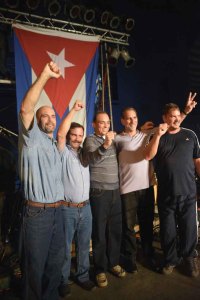
New Cuba-U.S.A. Pact And Remaining Cuban Five Prisoners Released
Attorney Michael Ratner:
- We’ve been covering this case for years on here. They were wrongfully convicted. They had been sent into Miami to stop Miami-Cuban terrorism against Cuba.
- The U.S. in a vindictive prosecution had sentenced them for many years, in fact one of them was sentenced to life in prison for conspiracy to commit espionage I think.
- It’s all part of a larger picture of what’s going on.
- Cuba in what’s not considered an exchange, of course obviously, released Alan Gross.
- Obama within limits sounds like he’s going to open relations within a certain way with Cuba and open an embassy in Cuba and Cuba, one in the United States.
- It’s amazing moment, the revolution took place in 1959, so that’s only 55 years ago approx, the embargo has been in effect since 1961. It’s still in effect of course but this is a really major moment.
- Attorney Len Weinglass would take 1 or 2 cases at a time, work on them like a dog, whether it was Mumia or in this case the Cuban Five and put every piece, every part of his life into it.
——
Attorney Heidi Boghosian:
- In the U.S. we continue to see the news portraying the five as spies when like you said they were really here to uncover unlawful activities on the part of the U.S government.
- They handed over files to the FBI, they were very forthright with the information they gathered.
- We also know from our interviews with attorney Mara Verheyden-Hilliard and Gloria LaRiva that the U.S. has been paying journalists in Miami to report negatively on the case of the Cuban Five and were doing so at the time of their trial.
- One of the lawyers we used to interview on this show and a close friend of ours Lenny Weinglass who passed away a couple of years ago was the main lawyer for the Cuban Five. It then became Martin Garbus who carried on the case in an extraordinary way, and I think that all of their work and all of the work of the Committee to Free the Cuban Five has led to result that I think would have been unforeseeable 20 years ago.
——
Civil Forfeiture Cases Follow Up
Michael Ratner Commends Dean of Columbia Law School Canceling Exams Allowing Option To Protest
International Criminal Court: Possible Prosecutions From U.S. Torture In Afghanistan
Happy Birthday Chelsea Manning
ECCHR Calls For 13 CIA Agents To Be Extradited To Germany
ECCHR Complaint Against Bush Era Architects Of Torture
Attorney Michael Ratner:
- It’s taking the Senate Report they did on detention and going further and saying now we actually have evidence from one of the branches of government admitting that the CIA engaged in this incredibly awful program of torture.
- Wolfgang Kaleck says there are about 500 CIA agents that should be quaking in their boots about traveling to Europe.
——
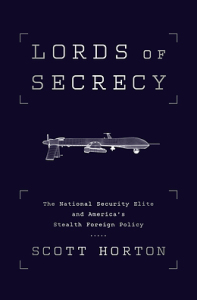
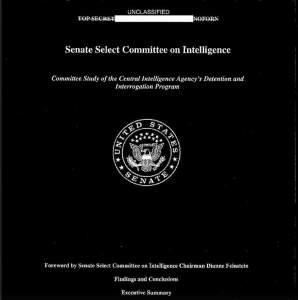
Senate Intelligence Committee Torture Report: Attorney Scott Horton
Guantanamo suicides, CIA interrogation techniques, CIA ordered physicians who violate the Hippocratic oath, are topics of some recent articles by returning guest attorney Scott Horton. Last month, he was on Democracy Now to debate former CIA General Counsel John Rizzo on the question of declassifying a Senate Select Committee on Intelligence report about the agency’s secret detention and interrogation programs. His book Lords of Secrecy The National Security Elite and America’s Stealth Foreign Policy will be published January 2015.
Attorney Scott Horton:
- I think the results flow directly from the media coverage (ABC poll on Torture report)
- Now major publications and broadcasters that hedged using the word torture have stopped doing that. There are only a handful of media sources that won’t do it. NPR being one of them.
- The media also presents roughly twice as much time devoted to people justifying the use of torture techniques to those criticizing it.
- Barack Obama who should lead the push back has gone completely silent. It’s beyond silent he talked about “tortured some folks” making it very casual, and then he said the torturers were patriots.
- I thought it was electrifying reading. 90 percent of it I’ve heard about before and still when you read them in this clinical, plain, highly factual style and things were developed with a continuous flow with lots of background in decision making in Washington at the top and how all this effected what happened on the ground.
- As a consumer of Congressional reports this probably the single most impressive Congressional oversight report I’ve ever seen.
- It’s an excellent example of what the oversight committee should be doing all the time.
- They’re doing this with respect to a program which was essentially or very largely wrapped up by October 2006.
- We’re talking about 8 1/2 years ago.
- They’re only able to do this kind of review in any depth when its historical, not when its real time oversight, that’s disappointing.
- One thing that emerges from looking at these reports and the military reports is that there is a huge black hole which has never been fully developed and explored and that’s JSOC, its the military intelligence side.
- That escaped review within the DOD process and it escaped review in CIA process and its clear that there’s a huge amount there.
- I certainly don’t expect prosecutions to emerge for the next couple of years in the United States, but I see a process setting in that may eventually lead to prosecutions.
- On the one hand we’re seeing a dangerous deterioration in relations with Russia, is an aggressor, which has seized territory in the heart of Europe, is waging a thinly veiled war on one of its neighbors. That is very unnerving to the major NATO powers.
- On the other hand there’s never been a period in the history of the alliance when there is so much upset at the United States.
- That’s come largely from the rise of the surveillance state and the role of the NSA.
- I was looking at this report, and we know that in 2006, there was an internal review that led the CIA to conclude that these interrogation techniques were ineffective and the CIA internally decided to seek a large part of the authority for EIT’s and operation of black sites rescinded.
- Another thing that’s very important here from this report, it tells us that Michael Hayden, George Tenant, Porter Goss and other very senior people at the CIA repeatedly intervened to block any form of punishment of people who are involved with torture and running the black sites.
- That’s important because of the legal document Command Responsibility. The law says when command authority makes a decision not to prosecute and immunize people involved with torture and abuse, that results in the culpability of these crimes migrating up the chain of command.
- I interviewed CIA agents who were involved in this program, and they told me they’ve all been brought out by legal counsels office and told – they may not leave the country.
- That means you’ve got roughly 150 CIA agents, including many people near the top of the agency who can’t travel right now.
- Lords of Secrecy The National Security Elite and America’s Stealth Foreign Policy
Guest – Scott Horton, human rights lawyer and contributing editor to Harper’s Magazine. Scott’s column – No Comment. He graduated Texas Law School in Austin with a JD and was a partner in a large New York law firm, Patterson Belknap Webb & Tyler. His new book Lords of Secrecy The National Security Elite and America’s Stealth Foreign Policy.
————————————————————————-
CIA Sponsored Terror, Civil Liberties, Criminalizing Dissent, Death Penalty, Guantanamo, Human Rights, NSA Spying, Political Prisoner, Surveillance, Torture, Truth to Power
Podcast: Play in new window | Download
Updates:
Michael Ratner: Is Congress’ Decision On Obama’s Plan To Close GTMO Really A Setback As Newspapers Report?
- Congress was considering whether to allow Guantanamo detainees to be resettled in the United States.
- That’s something Obama wants to do because so far he’s been unwilling to settle them in other countries.
- That bill failed and so when we get the NDAA or whatever legislation it will be put in, it will have transfer restrictions of a sort but it will not permit detainees to be transferred to the United States.
- Obama has had 6 years to make good on his promise that he would close Guantanamo in a year.
- Guantanamo remains, more than 142 people. More than half 73, have been cleared for release.
- On January 11, 2015, I urge all of us to get in the streets demonstrate and tell Obama to shut it down.
——-
Michael Ratner: The Right Livelihood Awards In Stockholm, Sweden
- I just came back from Stockholm, Sweden where the Right Livelihood Awards, also known as the alternate Nobel Prize are given out annually.
- Amy Goodman has received such an award. This time there were five awardees.
- One of whom is Edward Snowden. That was one of the reasons I was there because who are involved in defending protecting whistleblowers were in Stockholm for that award.
- The awards are not given by the Swedish government. Sweden is not a progressive government. It’s tied with Israel as the 3rd biggest arms dealer in the world.
- Sweden did recognize that Palestine should be a state.
United Nations Committee May Question U.S. Officials On Handling Of Michael Brown Shooting
——-
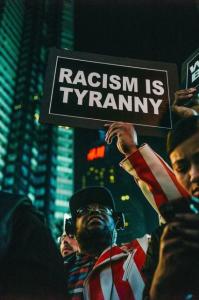

Ferguson: It is Right to Resist, By Any and All Means Necessary
Two weeks after the non-indictment of former officer Darren Wilson over the killing of Michael Brown, protests continue nationwide from classrooms to places of work. Will a genuine movement gain traction in the wake of outrage and defiance to the grand jury decision? A movement coalescing against police violence will need to confront police, and resist the legitimacy of the state writes Glen Ford founder of the Black Agenda Report. He says the people of Ferguson’s mass violations of the curfews and countless decrees of the militarized city, county and state police were, by definition, illegal acts – which is what made the small town a model of resistance.
Glen Ford:
- Not to belittle all the work people have put into this. There’s been a pent up energy that has been building and I mean for literally decades. We have to compare this explosion as you call it of activism to the period of quietude for decades even as the contradictions that led to Michael Brown’s murder and a multitude of murders kept on becoming more acute.
- We have to understand that there were forces that were keeping a lid on the explosion, and finally those forces could no longer do so and we see the explosion in 170 or more cities.
- Black folks have never trusted the police and never had any reason to trust the police. It’s never been about trust its been about power. The power of a community to protect its youth, its sons and daughters from being gunned down on the streets by these police or sucked up into the mass black incarceration machinery.
- The helplessness has not been something inherent to black folks its because we’ve had a kind of fifth column in our midst that we at Black Agenda Report call the black misleadership class which has engaged in very enthusiastic collaboration with the same people who created this black mass incarceration state.
- Back in June there was a vote in the house and the senate on a bill that would’ve prevented the Pentagon from transferring its weaponry and all of its militarized gear to local and state police departments.
- Four out of five Congressional Black Caucus members either voted against that bill or abstained. 32 out of the 40 members, so 80 percent of the Congressional Black Caucus. I guess its fitting that they stand in for this black misleadership class. They were financing the murder of people like Michael Brown.
- So, this is our problem, that these are the people that keep the lid on.
- What should be an ongoing, not simmering distrust, but an ongoing explosion of resistance.
- All of this started in terms of legislative form with the Law Enforcement Assistance Administration that was part of an omnibus crime bill that was passed in 1968 signed by Lyndon B Johnson which began by transferring massive federal resources to local police departments.
- It’s been gradual, steady and now institutionalized.
- This is the movement that does not yet have a name and it doesn’t have a name because its not yet clear about its objectives.
- The response to this civil rights and black power movement was the mass black incarceration state.
- Community control of the police and its a very very difficult subject. It was the subject that the Black Panther Party was born to tackle.
- The community should be empowered to fire police, just like communities are being empowered through their mayor to fire teachers.
- This movement can’t treat police as legitimate, that is coercive mechanisms of the state.
- Their police, their security apparatus, their intelligence apparatus has to be seen and opposed as illegitimate.
- He’s always in a huddle with President Obama (Al Sharpton) and that’s why I call him “king rat.”
- The real ratting that he does is that he goes across the country and he makes an assessment of who is in opposition to the administration’s policy or mass incarceration order and then goes right back to the commander and chief of the regime and tells him who might be creating trouble and how those troublemakers can be neutralized. That’s the real rat.
- Mass arrests and provocateurs and such. This is what Sharpton’s really talking about when he talks about the full weight of the president’s office.
Guest – Glen Ford, founder of the Black Agenda Report and many other media forums. Ford was a founding member of the Washington chapter of the National Association of Black Journalists (NABJ); executive board member of the National Alliance of Third World Journalists (NATWJ); media specialist for the National Minority Purchasing Council; and has spoken at scores of colleges and universities.
——-

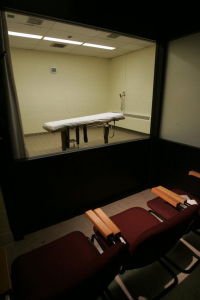
Ohio Republicans Push Law to Keep All Details of Executions Secret
Republican lawmakers in Ohio are rushing through one of the most extreme secrecy bills yet attempted by a death penalty state. It’s called HB 663 and it withhold information on every aspect of the execution process from the public, media and even the courts. Ohio has experienced four botched executions in eight years. The most recent was the 26 minute death of Dennis McGuire in January 2014. An experimental two-drug combination was used and it was reported that Dennis was gasping and fight for breath. Another aspect of HB 663 is that seeks to undermine strict distribution controls that have been placed on foreign companies that manufacture pentobarbital.
Attorney Mike Brickner:
- They’re really trying to ram through the last few weeks of our lame duck session.
- I think they want to resume executions here in the state of Ohio in 2015.
- We’ve had a moratorium on executions since the beginning of 2014 when we had a botched execution of Dennis McGuire and the federal court has been trying to come with new protocol, new drugs that won’t lead to a botched execution.
- I think the legislators want to move forward with the next scheduled execution in February so they’re trying to push it through as quickly as possible.
- I think they’re interested in secrecy because of all the controversy that has plagued Ohio executions over the last decades.
- I think this a natural concern from the government – when something is not going well, they want to hide it from the public.
- Unfortunately that never really works out well for the government because when you operate in secret, the only things that follow are corruption, abuse, negligence and incompetence.
- The legislation would shield anyone who really touches the lethal injection process from public records laws.
- For those medical professionals who advise or assist on the executions, it would prevent the state licensing board from holding them accountable for violating their oath.
- Unfortunately bad ideas often travel quickly. We have five states with secrecy legislation of some sort in place, we have 15 states that tried to enact secrecy legislation.
- Compounding pharmacies are smaller companies, often one or two pharmacists. They make small batches of drugs made to order. They’re not regulated in any meaningful way by the FDA.
- When they make these drugs in small batches, one batch could be more effective or less effective than another batch. When you’re talking about a lethal injection where you need to insure a humane and constitutional way, if you have a drug that’s being used in the lethal injection process that’s not effective, you have a very high chance of that person going through an execution that will violate our constitution.
- We have to accept that the death penalty does exist in states like Ohio and if we are to have the death penalty then we need to make sure that it complies with our laws and that those who are subjected to the death penalty are not treated inhumanely and in a way that will violate our constitution.
- I think we can do that while moving toward abolishing the death penalty.
Guest – Attorney Mike Brickner, senior policy director of the American Civil Liberties Union (ACLU) in Ohio. Brickner recently opposed the new bill in front of a committee at the Ohio State legislature. In 2013, Mike co-authored two reports focusing on the intersection of poverty and the criminal justice system. The Outskirts of Hope: How Debtors’ Prisons are Ruining Lives and Costing Communities chronicled how courts were illegally imprisoning low-income Ohioans because they could not afford to pay their fines. The report culminated in the Ohio Supreme Court increasing education and training for court personnel and issuing bench cards with clear rules for collecting fines and court costs. He also co-authored and designed the ACLU’s April 2011 report, Prisons for Profit: A Look at Private Prisons. The report highlights the problems faced by other states who have privatized prisons, including: increased costs, safety problems, a lack of transparency, and increased recidivism.
—————————————————————————–

Please help support Law and Disorder by clicking on Fractured Atlas graphic (link is fixed). This radio show is now a sponsored project of Fractured Atlas, a non-profit arts service organization. Contributions for the charitable purposes of Law and Disorder must be made payable to Fractured Atlas only and are tax-deductible to the extent permitted by law. You can donate as little as 5.00 a month.
Afghanistan War, CIA Sponsored Terror, Civil Liberties, Criminalizing Dissent, Guantanamo, Habeas Corpus, Human Rights, Prison Industry, Targeting Muslims, Torture, Truth to Power
Podcast: Play in new window | Download
Updates:
- Michael Ratner: U.S. President Barack Obama To Seek Additional War Powers From Congress
——


ICC Says Gaza Still Occupied, Israel May Have Committed War Crimes, But Court Refuses To Hear
Attorney Michael Ratner:
- When I’m in Berlin I see there’s a ICC decision by the prosecutor.
- People probably remember the attack on the Gaza flotilla, particularly the Mavi Marmara. One of 8 boats that were sent from Europe and other places, Turkey, to try and break the blockade that Israel had imposed on Gaza.
- Israel has been blockading Gaza forever essentially but it put in a very serious naval blockade in 2009 and no boats from the Mediterranean could approach within 20 miles of what Israel called its blockade.
- The Gaza Flotilla was established in 2010 to try and break the blockade it had 8 ships, one was named the Rachel Corrie.
- They were at least 80 miles away from Gaza, hadn’t even got into the blockaded territory when the Israeli commandos, the IDF made a raid on those boats.
- Particularly on the Mavimarmara which was a Turkish boat – the fact that the boat was registered in Comoros gave the ICC jurisdiction over the raid.
- People may recall the raid. Israeli commandos shimmied down on ropes from helicopters on to the Mavimarmara and they killed 9 people. A tenth died later.
- Ultimately, Comoros made a complaint to the ICC that – Israel attacked this flotilla even outside the 20 mile blockade zone, they committed war crimes. War crimes in that they were attacking civilian boats. War crimes in that they were killing civilians.
- Here I am sitting in Berlin thinking about the 76 anniversary of Kristallnacht, the tearing down of that wall, Raji Sourani from Gaza not being able to get in, and this ICC decision comes down.
- The ICC prosecutor says there’s a reasonable basis that war crimes were committed by the IDF in their attack on the Gaza Flotilla.
- The next sentence said as part of that finding Gaza was an occupied territory of Israel. That’s of great significance because when you’re an occupying force the laws of war apply. If you commit war crimes, if you kill people – civilians or intentionally targeting them or attack civilian objects.
- The third sentence is while we find that there was a reasonable basis that the IDF committed war crimes and that Israel continues to occupy Gaza despite its claim in 2005 that it left Gaza we are not going to take jurisdiction and further investigate the case, because the crimes were not essentially severe enough, big enough, enough of them . . . and therefore we’re not going to take this case.
- To look at them in an isolated way and not part of a stream of war crimes Israel has been committing since 1948 is outrageous.
- The Situation on Registered Vessels of the Union of the Comoros, the Hellenic Republic and the Kingdom of Cambodia
Law and Disorder Co-host Attorney Michael Ratner, President Emeritus of the Center for Constitutional Rights (CCR), a non-profit human rights litigation organization based in New York City and president of the European Center for Constitutional and Human Rights (ECCHR) based in Berlin. Ratner and CCR are currently the attorneys in the United States for publishers Julian Assange and Wikileaks. He was co-counsel in representing the Guantanamo Bay detainees in the United States Supreme Court, where, in June 2004, the court decided his clients have the right to test the legality of their detentions in court. Ratner is also a past president of the National Lawyers Guild and the author of numerous books and articles, including the books Who Killed Che? How the CIA Got Away With Murder, The Trial of Donald Rumsfeld: A Prosecution by Book, Against War with Iraq and Guantanamo: What the World Should Know, as well as a textbook on international human rights.
———

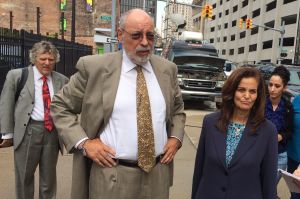
U.S. Government Finds 67-year-old Palestinian-American Rasmea Odeh Guilty
Earlier this summer we reported on Rasmea Odeh’s case. She’s a 67 year-old Palestinian American, community activist and teacher. In the fall of 2013, she was arrested by Department of Homeland Security for failing to disclose a 1969 conviction in an Israeli military court and charged with unlawful procurement of naturalization. Odeh, her father and fiancee were brutally tortured in an Israeli prison in 1969, which was related to a bombing in a Jerusalem supermarket. Israelis extracted a confession from Odeh and she spent 10 years in an Israeli prison where she was tortured and sexually assaulted.
Last week, Rasmea Odeh was found guilty of one count of Unlawful Procurement of Naturalization. For over a year, Rasmea, her supporters, and her legal team have been battling this unjust government prosecution, saying from the start that the immigration charge was nothing but a pretext to attack this icon of the Palestine liberation movement. And although there is real anger and disappointment in the jury’s verdict, it was known as early as October 27th that she would not get a full and fair trial, because Judge Gershwin Drain made it nearly impossible for her defense.
Attorney Michael Deutsch:
- This case emanates from the FBI and the US Attorney in Chicago investigating the work of the Arab American Action Network and other people who were doing Palestine solidarity work in the Chicago area and throughout the Midwest.
- They were bringing speakers here from Palestine to educate people
- As a result of that work they were targeted by the FBI. Ultimately in September of 2010, the homes 7 activists were invaded. All their political material was taken. There was a Grand Jury that convened and 23 activists were subpoenaed and they also sought the records of the Arab American Action Network.
- The U.S. Attorney of Chicago sent a request to Washington to look into the records of Odeh in Israel.
- After several years, the Israelis came up with documents that showed she was arrested in 1969, put on trial by a military tribunal in the Occupied Territories.
- . . found guilty, horrifically tortured, confessed as did her co-defendants, sentenced to life in prison, put in an Israeli prison, tried to escape in 1975, caught in a tunnel, trying to get out.
- As a result of this they looked at her Naturalization application and saw that she said no as to whether she had ever been arrested, convicted or in prison and the commenced a criminal investigation and indicted her 9 years after she had gotten her citizenship. Months before a statute of limitations would have run on this charge.
- We put forward a multi-level defense. One, we said that anything that was produced by the military court, the military judicial system was illegitimate, illegal – you’re tried by soldiers posing as judges. We said that she had been horrifically tortured and we had someone evaluate her over many days and hours, this woman who is one of the leading experts on torture said she (Rasmea) still suffers from PTSD.
- That would have caused her when she filled out the application to cognitively block what had happened to her 40 years prior in Israel and therefore she wasn’t intentionally lying.
- The judge refused all our motions, all our defense. He wouldn’t let her (Rasmea) testify about her torture, about her condition, or her innocence. All that was blocked by motions of the government.
- We went to trial basically with our hands tied behind our backs.
- What was a shock to me was the judge locked her up, pending sentencing. Now she sits in a county jail in Port Huron, Michigan for five months before the sentencing and obviously if the judge is not going to give her bail pending sentencing, he’s not going to give her bail pending appeal.
- Judge Gershwin Drain who is African American who at first was kind of sympathetic and supportive and initially said we were allowed to put on our PTSD expert and put on a PTSD defense. Then all of a sudden the government put a move to reconsider, he changed his mind and basically gutted our trial.
- We know of efforts all over the country to suppress student activity (around issues of Israel – Palestine)
- We have to convince the judge to let her out on an appeal bond. Even after all that if she’s sentenced, she’s going to go to prison and then when she’s done with her prison sentence, they’re going to put in her into immigration prison and they’re going to deport her.
Guest – Attorney Michael Deutsch, after clerking for United States Court of Appeals Judge Otto Kerner, Mr. Deutsch went into private practice, joining People’s Law Office in 1970 where he has represented political activists and victims of police and government civil rights violations. His advocacy has taken him all around the world, including to hearings in the United Nations. He has tried many civil and criminal cases in federal and state courts, and has written and argued numerous appeals, including several in the United States Supreme Court.
—–


Food Chains Documentary Film Opens Nationwide This Week
The documentary film Food Chains opens nationwide in the United States this month. The film brings you into the world of a Florida farmworker led effort to hold responsible the 4 trillion dollar global supermarket industry. The CIW is doing so through the Fair Food program. That’s the program which partners growers and retailers to improve working conditions for farm laborers in the United States. For years, farmworkers often endure abuse, wage theft, and have been beaten and sexually harassed. Food Chains’ producers include Eva Longoria and Eric Schlosser. Find out about screenings and action to take at www.ciw-online.org
Saturday November 22 – 1:00pm: Screening of Food Chains & Post-film Panel CIW-Quad Cinema (34 W 13th St) Food Chains also playing on Sat. Nov 22 at 7:45pm
Protest & March to Wendy’s Meet at Union Square Wendy’s (20 E. 14th St) Facebook
Guest – Gerardo Reyes Chavez, has worked in the fields since age 11, first as a farmer in Zacatecas, Mexico, and then in the fields of Florida picking oranges, tomatoes, and watermelons. He joined the Coalition of Immokalee Workers, a Florida-based human rights organization, shortly after his arrival in the United States in 2000, when his fellow farm worker roommates, who had previously escaped a violent slavery operation hidden in the swamp south of Immokalee, Florida, invited him to come to the CIW’s Wednesday evening community meetings.
——————————————————————————

Please help support Law and Disorder, the show is now a sponsored project of Fractured Atlas, a non-profit arts service organization. Contributions for the charitable purposes of Law and Disorder must be made payable to Fractured Atlas only and are tax-deductible to the extent permitted by law.

























